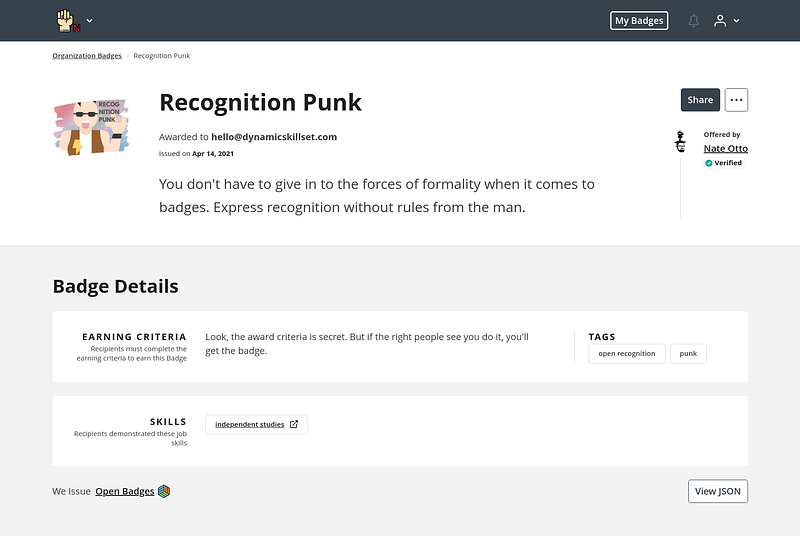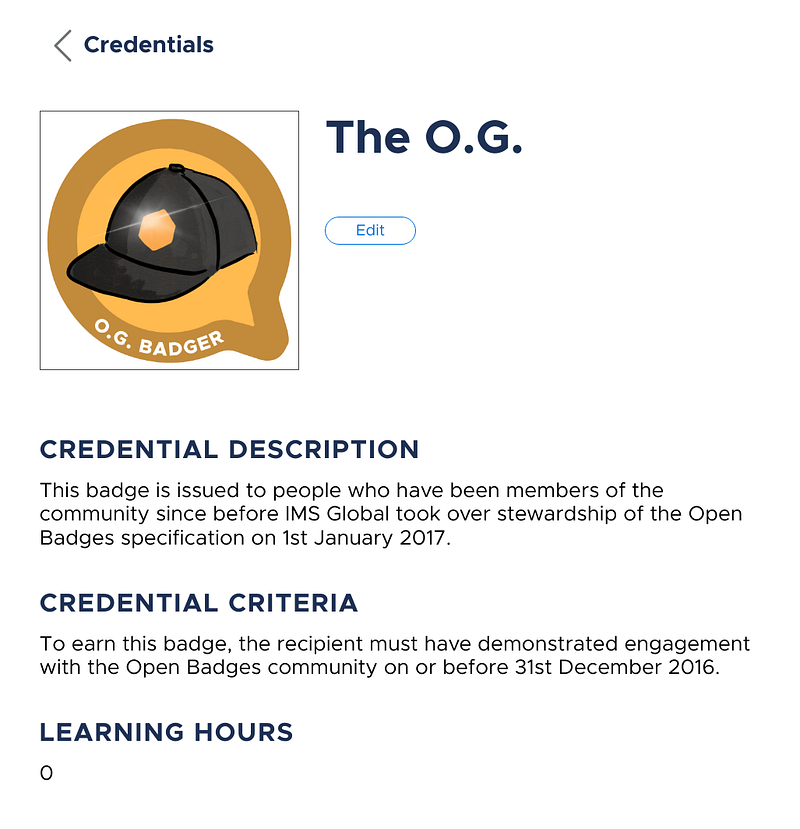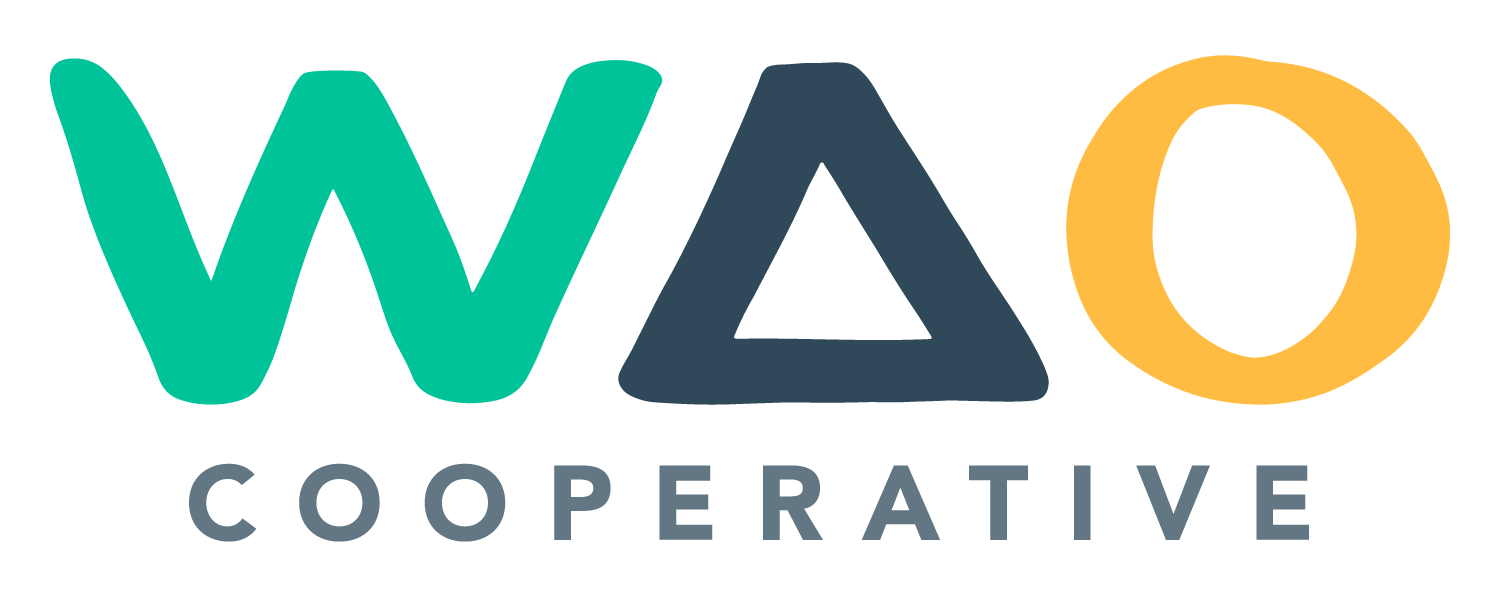
In our work with Participate in creating and sustaining Keep Badges Weird community (KBW) we’re using stealth badges. These have a long history in the world of Open Badges — and in fact were used in the proof-of-concept School of Webcraft course run in 2011. While there are badges that the individual knows about and can work towards, there are also some badges that are ‘unlocked’ by completing criteria that they don’t know about.
These stealth badges were based on some work being done around stealth assessment at the time which was informed by research in games-based learning.
Achievements can be awarded where there are clear public criteria for achieving the badge or could be stealth badges that the awardee knows nothing about until they have met the criteria. Between these extremes badges might be public, but could have cryptic hints as to how the badge might be achieved, to encourage curiosity and inquiry. Where criteria are uncertain this can be an active source of community debate, although this enthusiasm is quelled once the secrets are discovered and included in game FAQ guides. Nevertheless there is social capital to be earned in being the first to uncover these secrets. (Source)
In a community like KBW, the idea is to reward pro-social behaviours that keep the atmosphere welcoming and friendly. There is no peer review, but rather whoever has the necessary privileges to issue the badge can do so.
Stealth badges are unexpected and come with an element of surprise for the earner. Hopefully, earning them leads to a positive feeling or a warm fuzzy flow that makes the individual want to keep on contributing.
Logistics
Making a stealth badge is as easy as creating any other kind of Open Badge using one of the plethora of platforms available. The difficulty is in making sure it remains ‘stealthy’.
There are broadly three ways of doing this:
- Keep the criteria secret
- Don’t tell anyone how to earn it
- Provide no links to evidence
If you do all three of these then you end up with a badge such as this one issued by Nate Otto, himself an “O.G. Badger”, to me:

This means something coming from Nate, someone who I respect and have worked with before. It probably doesn’t mean a whole lot else to other people, but that’s not the point!
The more you want your badge to make sense to the participant, the less stealthy it will end up being. For example, we’ve issued a bunch of “O.G. Badger” badges in the KBW community. Anyone clicking through from the profile page of someone who has earned it would see this:

Equity and fairness
As you can see from the above image, there is a description: “This badge is issued to people who have been members of the community since before IMS Global took over stewardship of the Open Badges specification on 1st January 2017.” There is also criteria: “To earn this badge, the recipient must have demonstrated engagement with the Open Badges community on or before 31st December 2016.”
This information means that this particular badge, which is manually issued, can be given out in fair and equitable ways. It also means that someone else who engaged with the Open Badges community before 2017 could lay claim to it.
Stealth badges at scale require an automated system that issues badges depending on particular criteria. This is why they are very common in games-based environments. For example, I unlock some most weeks playing new and existing games on my PlayStation and Google Stadia.
Final thoughts
Open Badges are a great way to not only recognise learning and achievement, but participation, engagement, and pro-social behaviours. These three are particularly important in community learning scenarios as they engage our emotions as well as our brain cells.
There are other stealth badges that we’ve created for the KBW community — and to find them, you’ll have to come and try and find how to unlock them!
WAO’s members are 11-year veterans of the badges and digital credentialing landscape. If we can help you with your badge system design, get in touch!

Discussion